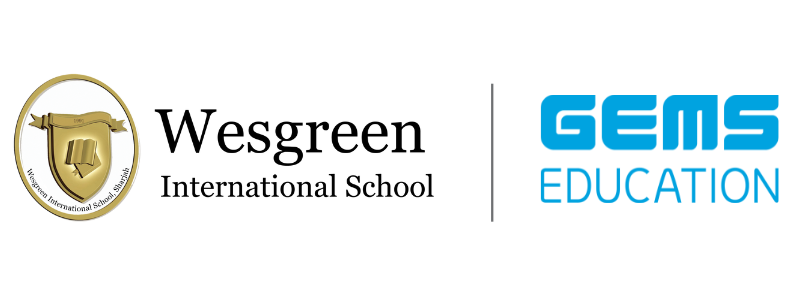FS2 - UNDERSTANDING THE WORLD COURSE SYLLABUS
Course Outline
Overview
Understanding the World comes under the specific area of the Early Years Foundation Stage. The UW syllabus at GEMS Wesgreen International Primary School aims to support students to develop their awareness of their physical world and their community through opportunities to explore, observe and find out about people, places, technology, and the environment.
Learning Outcomes
The aims of all subjects state what a teacher may expect to teach and what a student may expect to experience and learn. These aims suggest how the student may be changed by the learning experience.
The aims of the UW Syllabus are to encourage and enable students to:
- Know classroom areas and names
- Talk about past and present events in their own lives and in the lives of family members.
- Become familiar with our body and 5 senses
- Become familiar with plant and insect lifecycle
- Understand the journeys students have made local and abraod
- Explore countries; ancient and modern
- Compare and contrast differences of the planets
- Know the different types of occupations and the different job roles.
- Talk about the features of their own immediate environment and how environments might vary from one another.
- Look closely at similarities, differences, patterns and change.
- Complete a simple program on a computer
- Know about similarities and differences in relation to places, objects, materials and living things. They talk about the features of their own immediate environment and how environments might vary from one another.
- Look at the past and compare with present
- Compare fairy tales to the real world. If you were in the shoes of the characters, what would you have done?
Ongoing Objectives
There are objectives that are covered and built upon throughout the year during daily interactions in the classroom and when accessing the continuous provision.
Past and present
- Shows interest in the lives of people who are familiar to them.
- Beginning to talk about past and present events in their own life and in the lives of family members.
- Recognise changes in themselves through photographs and connections with their own lives and family.
- Shows interest in the lives of people who are familiar to them.
- Beginning to talk about past and present events in their own life and in the lives of family members.
- Recognise changes in themselves through photographs and connections with their own lives and family.
- Comment on images of familiar situations in the past.
- Confidently compare and contrast characters from stories, including figures from the past.
- Enjoys joining in with family customs and routines.
- Talks about past and present events in their own life and in the lives of family members.
- Talk about things that are extinct, eg – fossils, dinosaurs. Suggest ideas about why and how. Making connections.
People, Culure and Communities
- Understand that some places are special to members of their community.
- Beginning to recognise that people have different beliefs and celebrate special times in different ways.
- Beginning to recognise some similarities and differences between this country and life in other countries.
- Enjoys joining in with family customs and routines.
- Beginning to recognise some similarities and differences between this country and life in other countries.
- Enjoys joining in with family customs and routines.
- Recognise and describes special times or events for family or friends.
- Shows interests in different occupations and ways of life indoors and outdoors.
- Recognise that people have different beliefs and celebrate special times in different ways.
- Recognise some similarities and differences between this country and life in other countries.
The Natural World
- Explore the natural world around them.
- Beginning to describe what, they see, hear and feel whilst outside.
- Beginning to recognise some environments that are different to the one in which they live.
- Explore the natural world around them.
- Recognise some environments that are different to the one in which they live.
- Begin to look closely at similarities, differences, patterns and change in nature.
- Understand the effect of changing seasons on the natural world around them.
- Looks closely at similarities, differences, patterns and change in nature.
- Knows about similarities and differences in relation to places, objects, materials and living things.
- Talks about the features of their own immediate environment and how environment vary from one another.
Assessment
Formative: Throughout the units, the children will be observed daily during their focus and continuous provision activities. The observations will help inform next steps and planning.
Summative: At the end of each term we complete internal and standardized tests. This allows us to measure the students’ progress throughout the term and year. At the end of the academic year, the students complete the EYFS profile.


